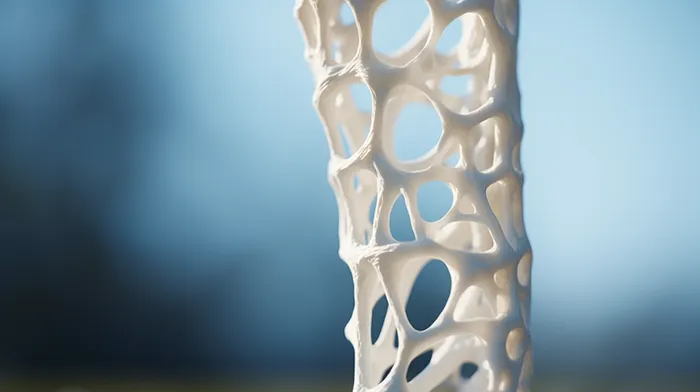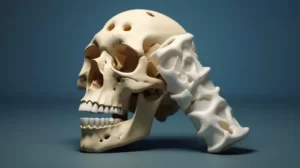Age-related bone loss is a reality for everyone, but the severity can significantly impact your quality of life. For post-menopausal women, the risk of developing osteoporosis – a progressive bone disease that causes bones to become weak, thin, and brittle – is even greater. Osteoporosis is often the reason behind hospitalizations for fractured hips in older women, as well as the shrinking stature and hunchback appearance. However, osteoporosis affects more than just older women. Younger individuals and men can experience this progressive bone disease as well. Here are five surprising factors that could be making your bones brittle.
1. Excessive salt intake
A diet high in sodium can negatively impact your bone health. Consuming too much salt causes your body to release calcium through urine, which can lead to a calcium deficiency and weak bones. The National Osteoporosis Foundation recommends a daily sodium intake of fewer than 2,300 milligrams to maintain bone health. To reduce your salt intake, be mindful of processed foods, fast food, and restaurant meals, as they tend to have high sodium levels. Opt for fresh, whole foods whenever possible, and season with spices or herbs instead of salt.
2. Lack of exercise
Bones, like muscles, need exercise to maintain their strength. A sedentary lifestyle can lead to weak bones and an increased risk of fractures. Weight-bearing exercises, such as jogging, walking, dancing, and resistance training, have been proven to maintain bone density and strength. The American College of Sports Medicine recommends at least 150 minutes of moderate-intensity aerobic exercise per week, along with resistance training twice a week for optimal bone health. Make sure to check with your healthcare provider before starting any new exercise program.
3. Smoking
Smoking is not only harmful to your lungs and heart, but it can also weaken your bones. Research has shown that smokers have a higher risk of developing osteoporosis and bone fractures. This is because nicotine and other chemicals found in cigarettes can interfere with your body’s ability to absorb calcium and produce new bone tissue. Additionally, smoking impairs blood circulation, which can affect bone healing after fractures. If you’re a smoker, quitting can significantly improve your bone health and overall wellbeing.
4. Insufficient sun exposure
Vitamin D is crucial for maintaining healthy bones, as it helps your body absorb calcium. However, many people don’t get enough vitamin D due to limited sun exposure. Spending 15-20 minutes per day in direct sunlight, without sunscreen, can help your body produce adequate levels of vitamin D. If going outside isn’t an option, there are vitamin D-rich food sources such as fatty fish, beef liver, and fortified foods like milk and orange juice. You may also consider vitamin D supplements if you’re concerned about not getting enough, but be sure to consult your healthcare provider first for personalized recommendations.
5. Certain medications
Certain medications can have negative side-effects on your bones, such as corticosteroids, proton pump inhibitors (PPIs), antidepressants, and anti-seizure medications. These medications may interfere with calcium absorption or directly affect bone metabolism. If you’re taking any medications that may impact your bone health, consult your healthcare provider to discuss alternatives or necessary preventive measures to protect your bones.
In conclusion, taking care of your bones is crucial at any age to prevent osteoporosis and maintain a healthy, active lifestyle. By reducing salt intake, quitting smoking, exercising regularly, getting enough vitamin D, and monitoring medications, you can significantly improve your bone health and reduce the risk of fractures and other complications associated with brittle bones.



